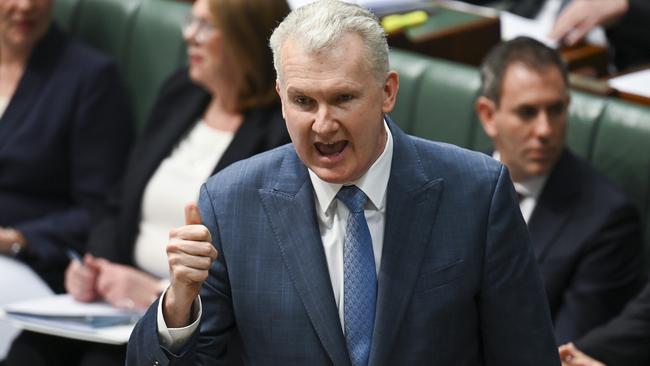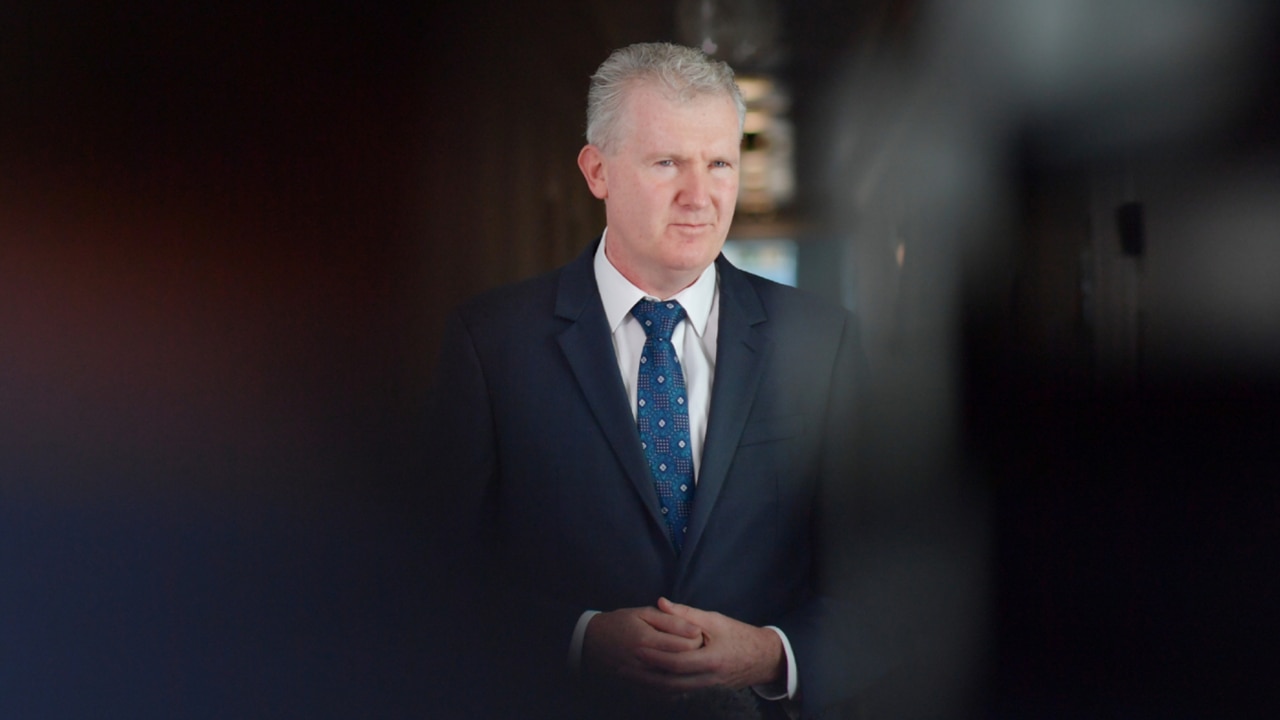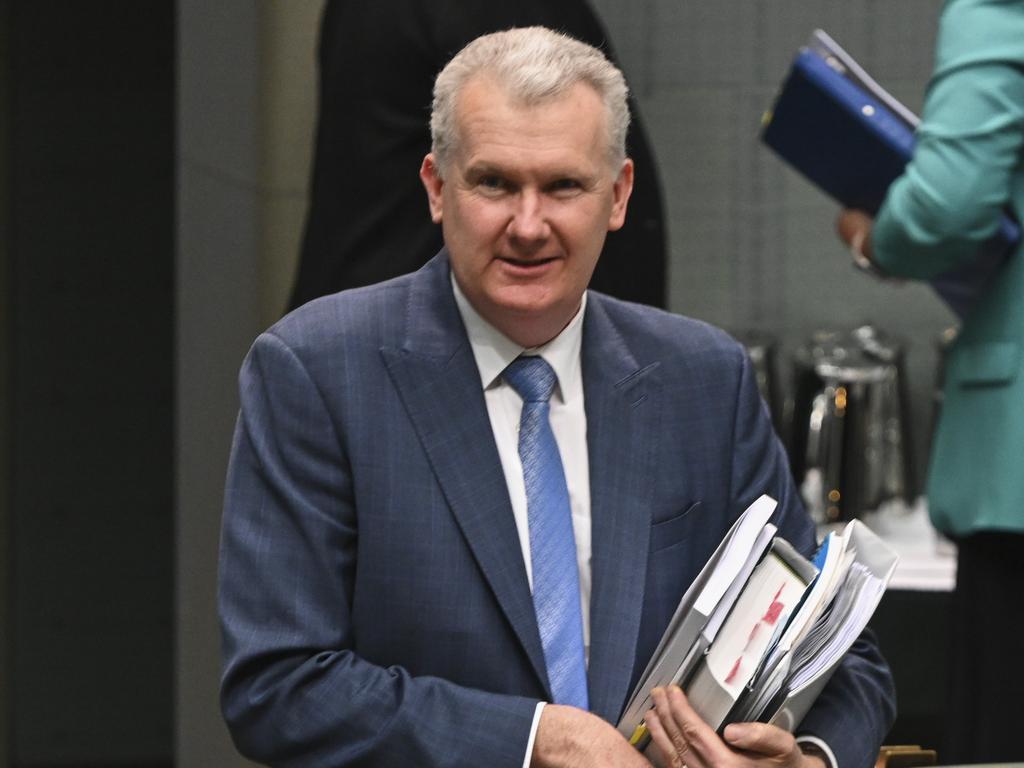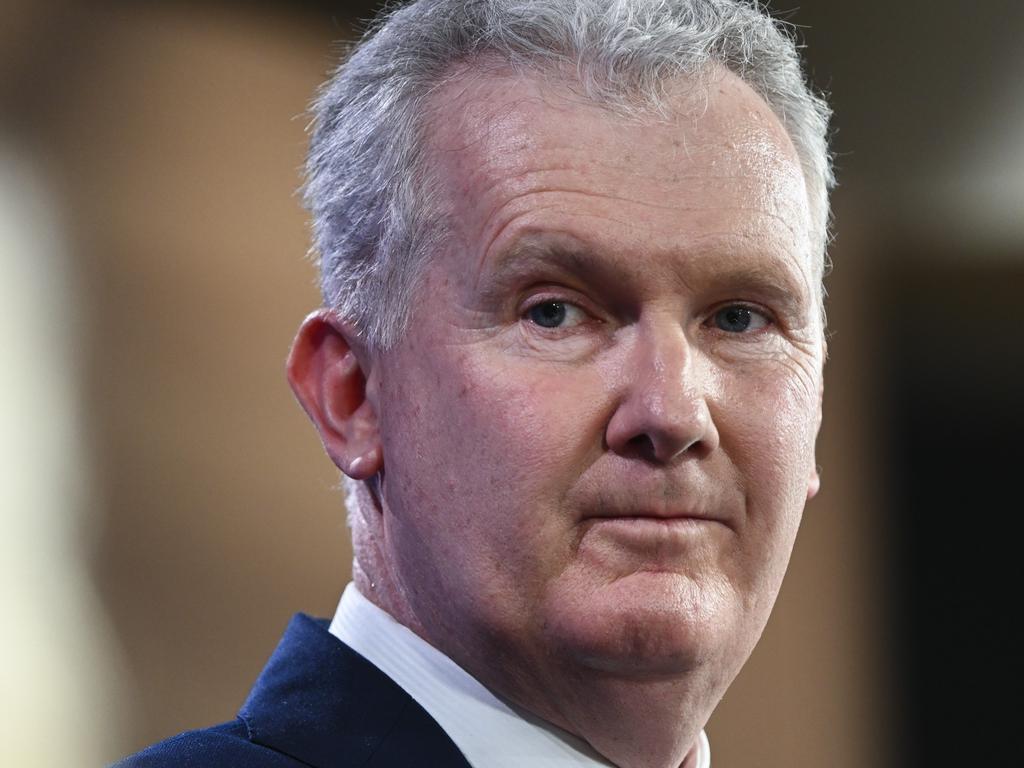
After months of confusion and promises that are unlikely to be kept, Burke tabled his union-endorsed industrial relations omnibus bill containing the 284-page legislation and 521-page explanatory memorandum.
Included in the highly complex legislation, that employers warn will smash productivity, jobs and investment, were cost-impact estimates projecting same job, same pay labour hire changes on their own would cost businesses more than $5.1bn over the decade.
After releasing the legislation, Burke continued his misleading claim that voters ahead of last year’s election fully understood the breadth and scale of Labor’s secret plan to impose a radical shake-up of Australia’s industrial relations system. His claims of concessions and carve-outs have been rejected by small-business leaders and resources chiefs who are flummoxed by his refusal to negotiate a middle ground.

The Workplace Relations Minister’s combative style, enforcement of non-disclosure agreements and square-ups targeting industry groups who fail to toe-the-line have left some senior cabinet colleagues perplexed. It hasn’t gone unnoticed that Anthony Albanese has resisted delivering a rousing defence or advocacy for Burke’s manifesto.
Burke, a career staffer and union official who is notionally attached to the once powerful NSW Labor Right faction, has actively and purposefully set up a fight with small and big business that will run to the 2025 election. Known to harbour leadership ambitions, Burke has won plenty of kudos from his union comrades.
Burke’s cosy relationship with union bosses was on show at the recent ALP national conference in Brisbane. There were no heated negotiations or prolonged discussions because union chiefs had already sealed the deal.
As the Prime Minister jets overseas on Tuesday amid plummeting support for the voice referendum and a cost-of-living crisis, business leaders will begin the task of picking apart the IR legislation and commissioning their own modelling.
Those business leaders who believed Albanese’s promise of a “modest” Labor reform agenda are reeling. They’ve already copped a new safeguard mechanism targeting industrial emitters, multi-employer bargaining rules and zero interest in major tax reform. Next to come is the second round IR laws and environmental law changes.
Burke’s populist focus on “closing loopholes” such as criminalising wage theft, protecting gig economy workers and strengthening labour hire rules masks more contentious policy changes including giving unions extraordinary powers, reviving the controversial Road Safety Remuneration Tribunal and introducing radical changes to the definition of a casual employee.
Multi-employer bargaining reforms, legislated shortly after business groups (now campaigning against the government) attended last year’s Jobs and Skills summit, are considered a drop in the ocean compared with the enormity of the IR omnibus bill.

While support for the big end of town has waned amid corporate scandals and record profits, Burke faces a challenge in convincing a friendly Senate crossbench to rubberstamp his union-backed laws. Crossbenchers, faced with a growing list of legislation, are already grumpy that their staff allocations were cut and have warned Burke they won’t be rushed into green-lighting the omnibus bill.
Figures recently quoted by Burke about impacts of the IR reforms are hotly contested. If the Office of Impact Analysis has low-balled modelling and projections in their economic impact statement, business groups will pull out all stops to debunk the government’s conservative estimates.
Burke’s IR crusade has successfully united the resources and warchests of big business, farmers, tradies, miners, small business, gas producers and recruiters. The pharmacists are already angry about double dispensing.
With economic growth projected to tank and productivity flatlining, the government is playing with fire.








Tony Burke’s “nothing-to-see here” mantra and marketing slogans designed to downplay his sweeping workplace overhaul ended on Monday.